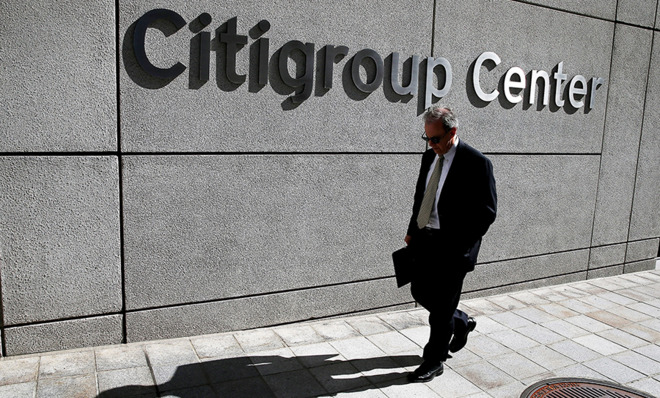How Wall Street is chipping away at reform
America's financial titans are arm-twisting Congress to roll back some of the Dodd-Frank financial reform act's toughest rules

A free daily email with the biggest news stories of the day – and the best features from TheWeek.com
You are now subscribed
Your newsletter sign-up was successful
After the financial crisis, Washington vowed to never again let Wall Street "write the rule book for itself," said Edward Luce at the Financial Times. How quaint that promise seems today. Four years after lawmakers passed the Dodd-Frank financial reform act, Wall Street is busy "arm-twisting Congress" to roll back some of the law's toughest rules. Earlier this month, on the brink of a government shutdown, an item written by Citigroup lobbyists was quietly slipped into the $1.1 trillion spending bill. It allows banks to resume trading risky derivatives in their units backed by taxpayers, reversing a key Dodd-Frank restriction. JPMorgan Chase CEO Jamie Dimon even personally called several lawmakers to support the repeal. Sen. Elizabeth Warren denounced the stealth change on the Senate floor, saying it "raises the risk that taxpayers will have to bail out the biggest banks once again," said Noah Bierman at The Boston Globe. She rallied some fellow Democrats to her cause, but the bill ultimately passed.
This victory for the banks "is not as major as it may initially seem," said Stephen Gandel at Fortune. The original reform demanded that banks funnel some of their derivatives trades through separate subsidiaries that aren't backed by the Federal Deposit Insurance Corp., in order to force the banks to absorb more risk themselves. But that rule "had huge loopholes"; billions of dollars of interest rate swaps and currency derivatives were already immune from it. In fact, just 0.5 percent of total U.S. bank assets were ultimately covered — hardly worth the fuss Warren made. This rollback also "didn't come completely out of the blue," said Jon Healey at the Los Angeles Times. More than a third of House Democrats and virtually every House Republican voted last year to change the rule, and many top bank regulators opposed it way back in 2010.
But from a taxpayer's perspective, the original reform was a no-brainer, said Matt Taibbi at Rolling Stone. All it said was that banks guaranteed with taxpayer money shouldn't "use your bank accounts as a human shield to protect their dangerous gambling activities." Wall Street cronies now want to convince us the rule wasn't that important, or that Warren's outspoken opposition was just grandstanding to further her political ambitions. That's just some clever counterspin designed to distract from the fact that banks are once again partaking in the same risky behavior that led straight to the 2008 bailouts. It just goes to show you how both parties are in the thrall of Wall Street, said Paul Krugman at The New York Times. Because no matter which side of the political aisle you fall on, "you should be against letting Wall Street play games with government-guaranteed funds."
The Week
Escape your echo chamber. Get the facts behind the news, plus analysis from multiple perspectives.

Sign up for The Week's Free Newsletters
From our morning news briefing to a weekly Good News Newsletter, get the best of The Week delivered directly to your inbox.
From our morning news briefing to a weekly Good News Newsletter, get the best of The Week delivered directly to your inbox.
If this episode teaches us anything, it's that the big banks are "willing to play the long game" to water down Dodd-Frank "one provision at a time," said Dave Clarke at Politico. The industry now knows that the White House and Democrats are willing to swallow unpalatable changes to the law if it means getting big deals done. Wall Street heard the message loud and clear, and the big banks are no doubt weighing where to strike next.
A free daily email with the biggest news stories of the day – and the best features from TheWeek.com
-
 Quentin Deranque: a student’s death energizes the French far right
Quentin Deranque: a student’s death energizes the French far rightIN THE SPOTLIGHT Reactions to the violent killing of an ultra-conservative activist offer a glimpse at the culture wars roiling France ahead of next year’s elections.
-
 Secured vs. unsecured loans: how do they differ and which is better?
Secured vs. unsecured loans: how do they differ and which is better?the explainer They are distinguished by the level of risk and the inclusion of collateral
-
 ‘States that set ambitious climate targets are already feeling the tension’
‘States that set ambitious climate targets are already feeling the tension’Instant Opinion Opinion, comment and editorials of the day